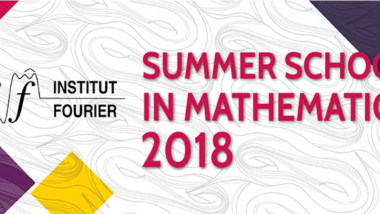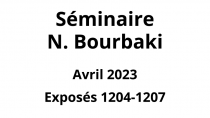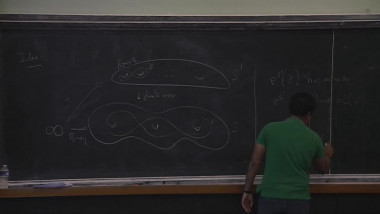[1205] Pointwise convergence for the Schrödinger equation
For an initial datum $f \in L^2(\mathbf{R}^n)$, consider the linear Schrödinger equation
$$\left\{ \begin{array}{l} i u_t - \Delta_x u = 0, \ u(x,0) = f(x) \end{array} \qquad (x,t) \in \mathbf{R}^n \times \mathbf{R}.$$
In 1980, Carleson asked which additional conditions on $f$ guarantee
$$\label{pointwise} \lim_{t \to 0} u(x,t) = f(x) \qquad \text{for almost every } x \in \mathbf{R}^n. \tag{$\star$}$$
More precisely, what is the minimal Sobolev regularity index $s$ such that [pointwise] holds whenever $f \in H^s(\mathbf{R}^n)$?
Whilst the $n=1$ case was fully understood by the early 1980s, in higher dimensions the situation is much more nuanced. Nevertheless, a recent series of dramatic developments brought about an almost complete resolution of the problem. First Bourgain (2016) produced a subtle counterexample demonstrating that pointwise convergence can fail for certain $f \in H^s(\mathbf{R}^n)$ with $s < \tfrac{n}{2(n+1)}$. Complementing this, convergence was then shown to hold for $s > \tfrac{n}{2(n+1)}$ when $n=2$ in a landmark paper of Du, Guth and Li (2017) and later in all dimensions in equally important work of Du and Zhang (2019).
This seminar will explore the positive result of Du and Zhang (2019). The argument combines sophisticated modern machinery from harmonic analysis such as the multilinear Strichartz estimates of Bennett, Carbery and Tao (2006) and the $\ell^2$ decoupling theory of Bourgain and Demeter (2015). However, equally important are a variety of elementary guiding principles, rooted in Fourier analysis, which govern the behaviour of solutions to the Schrödinger equation. The talk will focus on these basic Fourier analytic principles, building intuition and presenting a powerful toolbox for tackling problems in modern PDE and harmonic analysis.
[After Xiumin Du and Ruixiang Zhang]











![[1204] Le groupe des homéomorphismes de la sphère de dimension $2$ qui respectent l’aire et l’orientation n’est pas un groupe simple](/media/cache/video_light/uploads/video/Capture%20d%E2%80%99%C3%A9cran%202024-04-15%20%C3%A0%2011.56.22.png)
![[1205] Pointwise convergence for the Schrödinger equation](/media/cache/video_light/uploads/video/Capture%20d%E2%80%99%C3%A9cran%202024-04-15%20%C3%A0%2011.56.59.png)
![[1206] Exponential growth rates in hyperbolic groups](/media/cache/video_light/uploads/video/Capture%20d%E2%80%99%C3%A9cran%202024-04-15%20%C3%A0%2011.55.22.png)
![[1207] Strong forcing axioms and the continuum problem](/media/cache/video_light/uploads/video/Capture%20d%E2%80%99%C3%A9cran%202024-04-15%20%C3%A0%2011.57.39.png)

